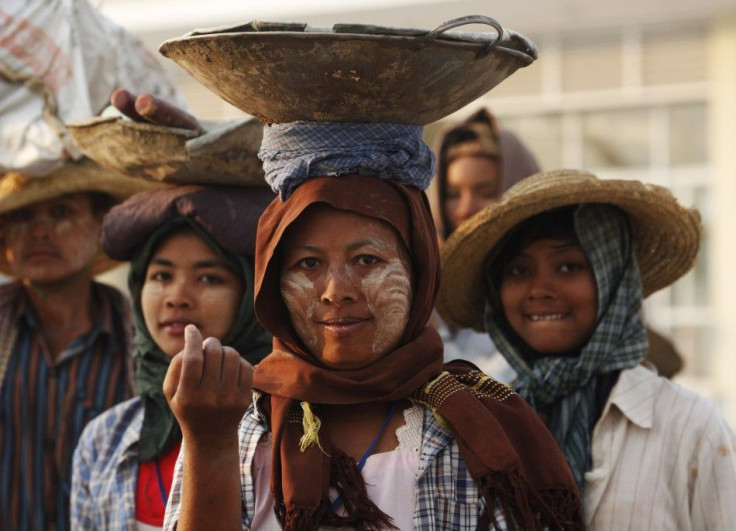Burma Ends 50-Year Ban on Labor Unions, Right to Strike

Having already freed hundreds of political prisoners and begun the process of opening it up more to the outside world, the new military-backed, civilian government of Burma has made another surprising political reform – it will now permit labor unions and give workers the right to strike, under new laws signed by the president Thein Sein.
According to reports, the legislation will allow the formation of unions with a minimum of thirty members and the right to take industrial action as long as period of notice of three days is provided.
Under the law, employers who fire workers for belonging to a union may face a fine of up to 100,000 kyat ($120) or up to a year in jail, or both.
BBC reported that unions have been banned in the once-closed society since 1962.
Myint Thien, Burma’s Deputy Labour Minister, told Democratic Voice of Burma (DVB), an Oslo, Norway-based broadcaster operated by Burmese exiles: “[The new laws] will help us get more benefits for the economy because our labor organization law means they can organize according to their will and our government transparency will attract foreign countries and therefore FDI [foreign direct investment] can flow freely.”
A spokesman for Burma’s most well-known pro-democracy activist, Aung San Suu Kyi of the National League for Democracy (NLD) party, told BBC they are happy with the law since the rights of workers had improved from nothing to something.”
Steve Marshall, the Burma representative of the International Labour Organization, the pro-union United Nations agency, told BBC: Clearly the introduction of legislation which legalizes worker representation is an extremely positive step.
Marshall noted that Burmese officials conferred with ILO members in drafting the new laws.
Marshall told DVB: “We have to say it is a massive move for the country in terms of the social development, and frankly, economic development. You don’t join unions to simply be in a club – you join unions for collective bargaining and proper economic management of the labor market.”
However, BBC noted that skeptics contend that they wonder if unions will actually be allowed operate once the law comes into effect, citing that many labor activists are languishing in Burmese jails.
Moreover, unions will be required to register with a national registrar appointed by the President.
Marshall added: “As in every other country there will be unions associated with political groupings [which are normal] as long as there is no pressure being placed on people to join particular unions.”
© Copyright IBTimes 2024. All rights reserved.











